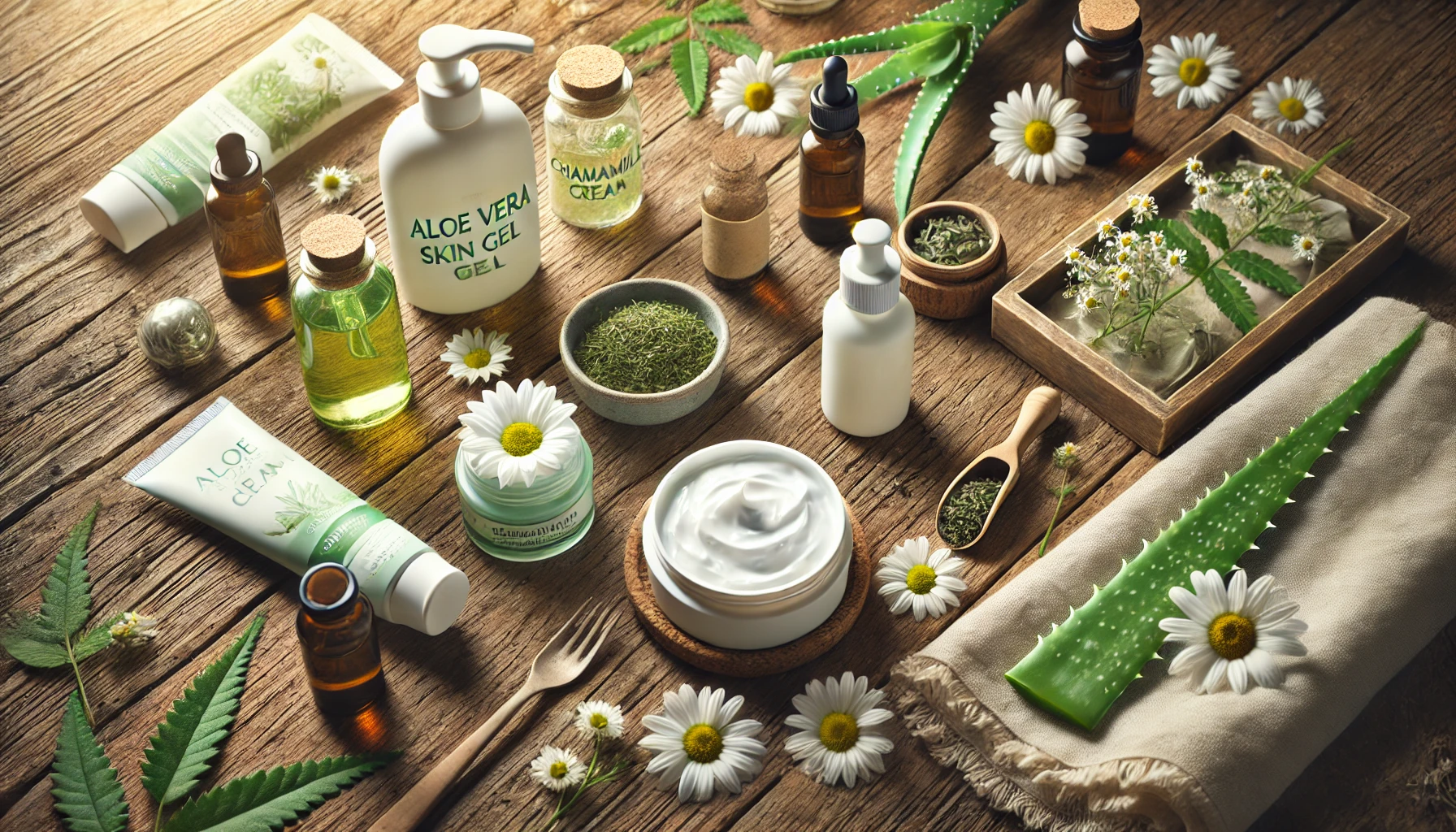Discover expert tips, organic routines, and natural ingredients for healthy, glowing skin. Learn how to build a well health organic skin care routine today!
Introduction: Why Organic Skin Care Matters
In a world full of synthetic products and chemical-laden skin care routines, organic skin care has emerged as a gentle, effective, and sustainable alternative. Well health organic skin care focuses on using nature’s purest ingredients to nourish your skin without compromising your health or the environment.
This comprehensive guide explores the benefits, tips, and expert insights to help you embrace a healthier, natural skin care routine that supports your skin’s glow — the organic way.
Benefits of Well Health Organic Skin Care
| Section | Key Topics Covered |
|---|---|
| Introduction | Why Organic Skin Care Matters |
| Benefits | Health, Environmental, and Ethical Benefits |
| Key Ingredients | Natural Ingredients to Look For |
| Daily Routine | Step-by-Step Organic Skin Care Routine |
| Common Myths | Debunking Misconceptions About Organic Skin Care |
| DIY Recipes | Easy Homemade Organic Skin Care Recipes |
| Expert Opinions | Dermatologists & Holistic Experts Share Insights |
| FAQs | Common Questions About Organic Skin Care |
| Conclusion | Embrace Natural Beauty |
The Benefits of Well Health Organic Skin Care
1. Healthier for Your Skin
Organic products avoid harsh chemicals like parabens, sulfates, and synthetic fragrances — reducing your risk of irritation, allergies, and long-term skin damage.
2. Environmental Benefits
Organic farming avoids harmful pesticides and promotes biodiversity. Eco-friendly packaging also reduces waste.
3. Ethical and Cruelty-Free
Most organic brands are cruelty-free and avoid animal testing. Ethical sourcing ensures farmers are treated fairly.
4. Enhanced Nutritional Value
Organic ingredients retain higher levels of antioxidants, vitamins, and beneficial oils — giving your skin the nourishment it craves.
Key Organic Ingredients to Look For
| Ingredient | Benefits for Skin |
|---|---|
| Aloe Vera | Soothes irritation, hydrates skin |
| Coconut Oil | Moisturizes, anti-bacterial properties |
| Green Tea | Rich in antioxidants, reduces redness |
| Shea Butter | Deep hydration, anti-inflammatory |
| Jojoba Oil | Balances oil production, non-comedogenic |
| Rosehip Oil | Fades scars, promotes collagen |
| Chamomile | Calms sensitive skin |
| Turmeric | Anti-inflammatory, brightens complexion |
| Honey | Natural humectant, antimicrobial |
Daily Well Health Organic Skin Care Routine
Morning Routine
- Gentle Cleanser – Use a sulfate-free organic cleanser.
- Toner – Choose rose water or witch hazel.
- Serum – Apply vitamin C serum from organic sources.
- Moisturizer – Use a lightweight organic cream.
- Sunscreen – Mineral sunscreen with zinc oxide.
Evening Routine
- Oil Cleanser – Use jojoba or coconut oil to remove makeup.
- Gentle Cleanser – Double cleanse to remove impurities.
- Toner – Hydrating mist or aloe vera.
- Treatment – Organic retinol or turmeric serum.
- Night Cream – Deeply hydrating with shea butter.
Common Myths About Organic Skin Care
Myth 1: Organic Products Are Less Effective
Truth: Many organic products contain powerful botanical extracts scientifically proven to improve skin health.
Myth 2: Organic Skin Care is Too Expensive
Truth: While some products are pricey, affordable organic options and DIY solutions exist.
Myth 3: Organic Means 100% Natural
Truth: Not all organic products are 100% natural — check for certifications like USDA Organic or Ecocert.
DIY Organic Skin Care Recipes
1. Gentle Oatmeal Cleanser
Ingredients:
- 2 tbsp ground oats
- 1 tbsp honey
- Warm water
Instructions: Mix into a paste, massage onto damp skin, rinse.
2. Green Tea Toner
Ingredients:
- 1 cup brewed green tea (cooled)
- 5 drops tea tree oil (optional)
Instructions: Store in a spray bottle, mist onto skin after cleansing.
3. Avocado Honey Face Mask
Ingredients:
- 1/2 ripe avocado
- 1 tbsp honey
Instructions: Mash and apply for 15 minutes, then rinse for hydrated skin.
4. Turmeric Brightening Serum
Ingredients:
- 1 tsp turmeric powder
- 1 tbsp aloe vera gel
Instructions: Apply to dark spots for 10 minutes, rinse well.
Expert Opinions on Organic Skin Care
Dr. Priya Mehta, Dermatologist
“Switching to organic skin care can significantly reduce irritation caused by synthetic chemicals, especially for sensitive skin types. The key is to choose well-formulated organic products with clinically backed ingredients.”
Sarah Connor, Holistic Skin Therapist
“Organic skin care isn’t just about products — it’s a lifestyle. Drinking herbal teas, eating organic foods, and using organic beauty products creates a holistic approach to radiant skin.”
Kamal Patel, Cosmetic Scientist
“Some organic ingredients like turmeric, green tea, and rosehip oil have strong scientific evidence supporting their benefits. Organic skin care works best when paired with sun protection and a balanced diet.”
FAQs About Well Health Organic Skin Care
1. Is organic skin care better than regular skin care?
It depends on your skin type and preferences. Organic products often avoid synthetic chemicals, making them gentler for sensitive skin. However, not all non-organic products are harmful. Choose products based on your skin’s needs.
2. Are organic products suitable for acne-prone skin?
Yes, many organic products use ingredients like tea tree oil, aloe vera, and witch hazel, which can calm inflammation and fight acne without stripping the skin.
3. How can I know if a product is truly organic?
Look for trusted certifications such as USDA Organic, Ecocert, COSMOS Organic, or Soil Association. Check the ingredient list and avoid greenwashing claims.
4. Can I combine organic products with regular products?
Yes, but be mindful of potential ingredient interactions. For example, mixing a synthetic exfoliant with a soothing organic serum could work well, but combining multiple actives may irritate sensitive skin.
5. What’s the difference between natural and organic skin care?
Natural products may contain plant-based ingredients, but they aren’t always grown organically. Organic products use ingredients grown without synthetic pesticides or fertilizers, making them cleaner for both skin and the planet.
Conclusion: Embrace Natural Beauty with Well Health Organic Skin Care
Switching to well health organic skin care is more than a beauty trend — it’s a step towards a healthier, more sustainable lifestyle. By nourishing your skin with organic goodness, you not only protect your health but also contribute to a cleaner planet.
From simple DIY recipes to expert-approved organic products, you have countless options to create a skin care routine that works naturally for you. Prioritize transparency, choose brands with ethical sourcing, and listen to your skin’s needs — because beauty should feel as good as it looks.







